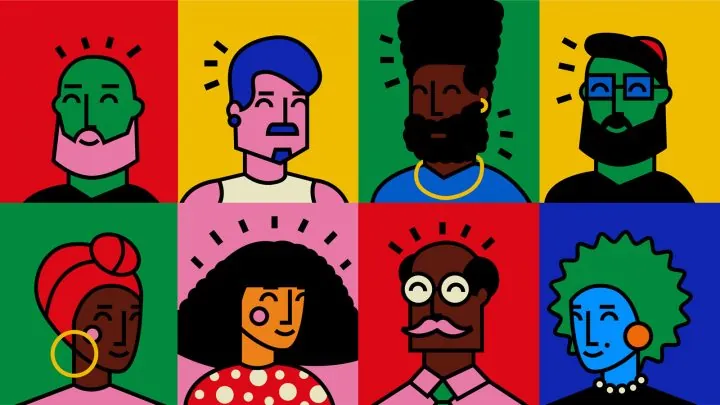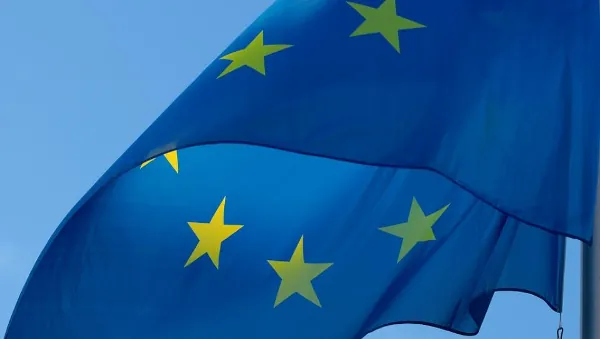Back to the future: for a free, open Internet
Franziska Heine
Christian Humborg
1. February 2023
Back to the roots. That’s what it feels like to use Mastodon these days – and we’re sure many others born before 1980 feel the same way. Mastodon is a reminder of what it was like when almost all content didn’t inevitably end up on the big platforms sooner or later. When the World Wide Web was still a place of visions and not a playground for incubators and investors. A free, open Internet – it’s clearer now than ever that we need more of that spirit.
Elon Musk’s handling of Twitter marks a high point of techno-feudalism, a term Michael Moorstedt used in the Süddeutsche Zeitung. The richest man in the world treats employees like productive livestock in the Taylorist tradition, puts on strategic roller coaster rides, and on top of that lets us partake in his reflections in amazement. Unfortunately, also in his political views.
Whether Twitter will survive or not and whether its collapse would be good or bad in terms of democratic theory is a matter of smart debate. Without a doubt, however, Elon Musk’s Twitter crash course is a great opportunity – for the Internet and for democracy. It’s up to all of us to seize this opportunity. Let’s move to this freer part of the Internet. Let’s create something together instead of just using what the commercial platforms offer us.
Software that nobody owns
Mastodon now offers the opportunity to extend the promise of a collaborative, free and open Internet to more areas. Eugen Rochko, the developer of the microblogging service, not only recognized the importance of a non-commercially controlled global communications space, but also laid the practical groundwork for it. The core difference between Mastodon and Twitter is not that one has advertising and the other does not. But it is the question of ownership. Mastodon is free software, owned by no one, and its service is decentralised. Its many different instances are run by a wide variety of people and entities.
Mastodon is part of the Fediverse, which is a whole network of different services, all based on free software, that can be linked together as part of a federation. A federation is the counterpart to a central organization and is characterized by the autonomy of its parts. These are largely autonomous and work together on an equal footing. Other projects also use this principle. Wikimedia Deutschland has developed Wikibase, a free software for managing structured data, in close coordination with volunteers.
Both Mastodon and Wikibase allow associations and individuals to offer their own instances. Despite their autonomy, all Mastodon users can compile a timeline containing content from different instances. Likewise, Wikidata users can process all data across all Wikibase instances.
The community moderates itself
This decentralization and freedom also mean that different rules can apply on different Mastodon instances. Running an instance requires server capacity and moderation. In the current debate, the focus is on paying for server capacity, while moderation is largely done on a volunteer basis. There has long been a great example that content moderation by a community is possible – and that it can even work better and more expeditiously than global tech corporations: Wikipedia.
Moderation involves rules and enforcing them. Those who do not follow the rules can be banned from the Mastodon instance. Eugen Rochko highlighted a very important aspect of freedom of speech in an interview with Time Magazine: “If you allow the most intolerant voices to be as loud as they want to be, you’re going to shut down voices of different opinions as well. So allowing free speech by just allowing all speech is not actually leading to free speech, it just leads to a cesspit of hate”.
For a better understanding of what is happening, it is worth taking a look at the legal-political discussion about what is the object of state regulation in the case of hate speech and incitement of the people in the Fediverse: the federation or the individual instance? Depending on how you look at it, the user numbers differ, and so do the very different regulatory obligations. Since power is distributed and not centralized in the Federation, we are in favor of regulation at the instance level. Because even if a single instance allows everything outside what is clearly forbidden, other instances can decide to cut the connection to it.
It is difficult to understand the complaints about the insufficient usability when registering on Mastodon. The choice of an instance, which takes a few minutes, approaches zero as a time investment in view of the long usage time. The ratio presumably corresponds to the duration of voting in relation to the legislative period of the elected.
Monopolies are democratized
What is most interesting about the current Twitter drama is Musk’s idea of funding by users rather than pure funding by advertising. Deciding how technology and moderation will be funded in the future could become a key moment in the digital justice discourse. Advertising funding allows access to everyone with digital devices and the appropriate bandwidth, at the price of leaking extensive personal data. In contrast, funding by the users themselves creates a space of exclusivity, but one in which less hate and toxicity is tolerated.
The Fediverse operates without advertising and still relies heavily on volunteerism. The many instances make the Internet colorful. This is a central development step in the democratization of the Internet. Because this step towards colorful diversity replaces monarchies and can mean a new stage of development in the digital democratic process. The choice of the Mastodon instance and its use are a freedom right of citizens on the democratic Internet that hopefully many will exercise.
Wikimedia Deutschland is now also on Mastodon. We have set up a Mastodon instance exclusively for employees of the association – and on our account @wikimediaDE@social.wikimedia.de we inform you about news from the association and about Free Knowledge. Feel free to follow us and exchange ideas with us!





